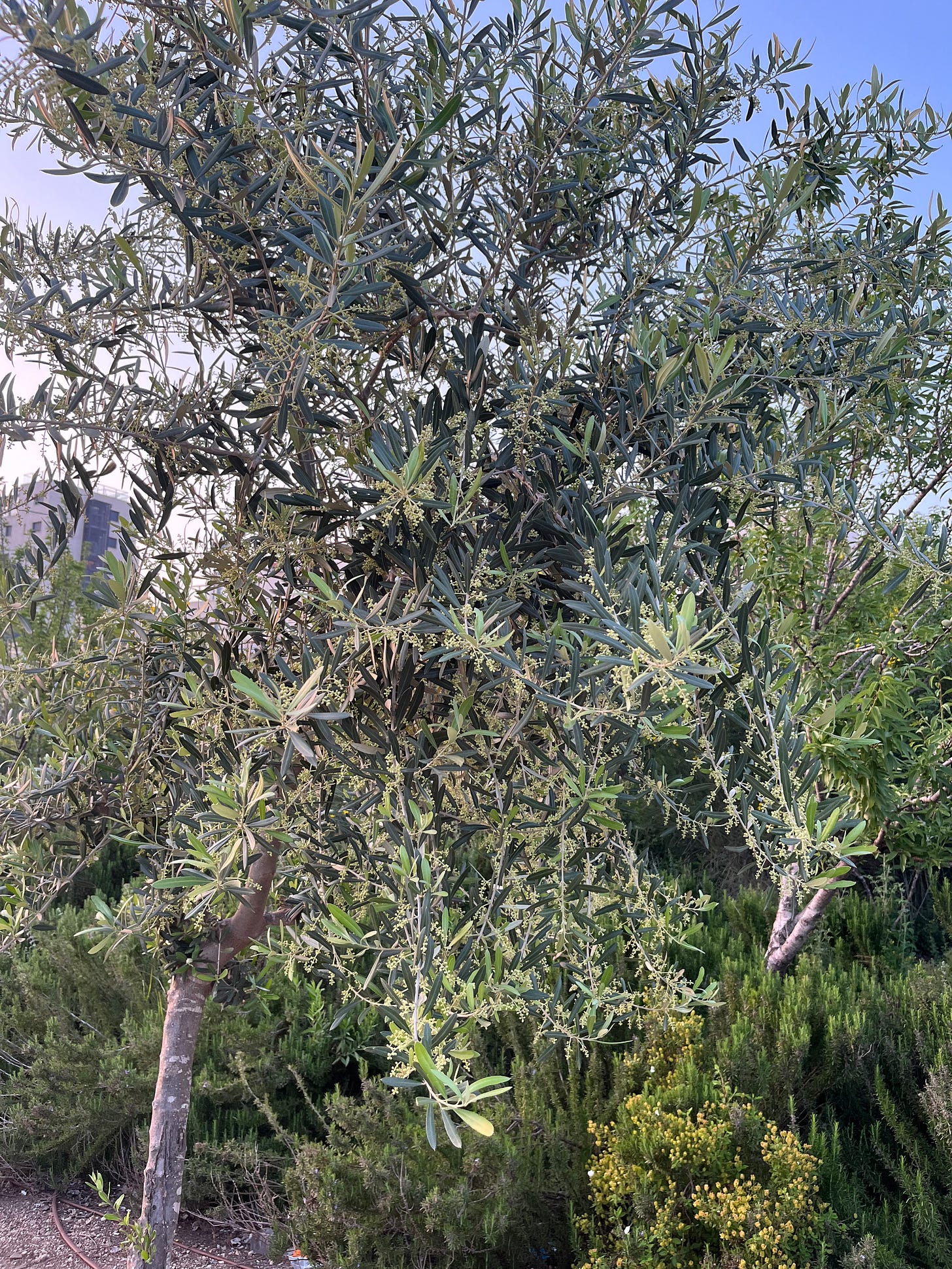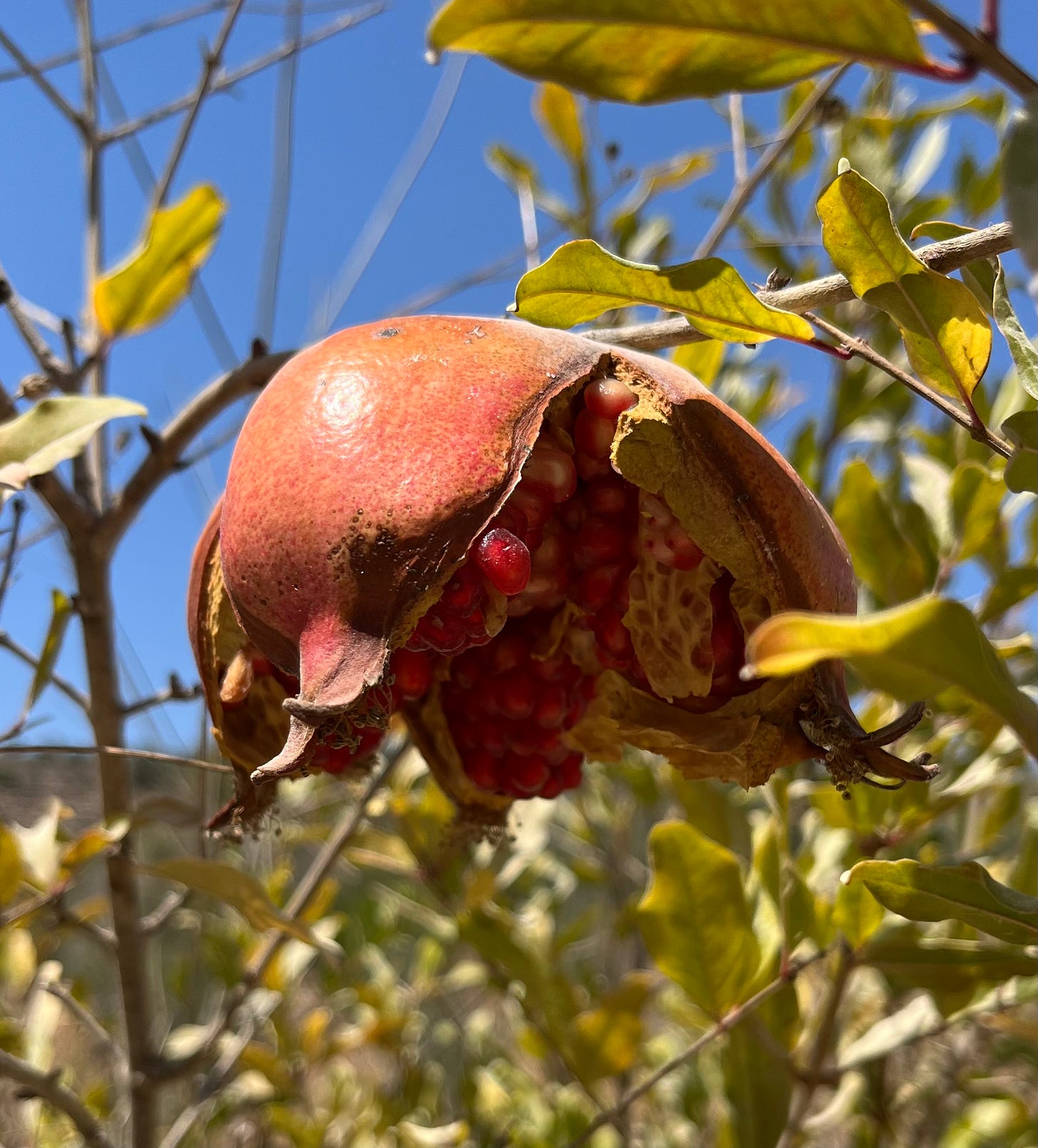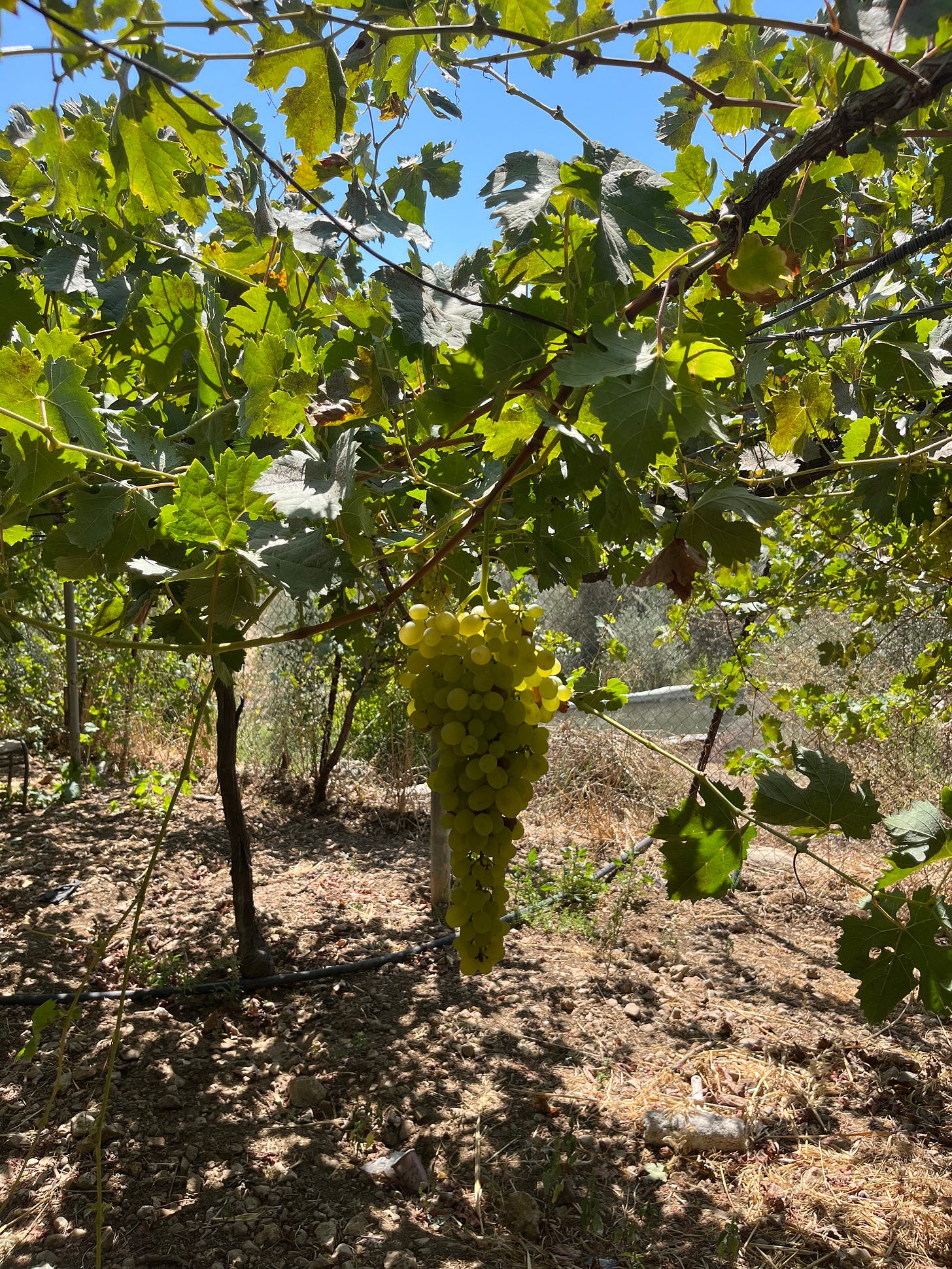The Holiday with No Day
Celebrating Israel is a personal mission—each Jew, their moment, their offering.

Dear Healthy Jew,
As you may recall from Chapter 8 of my book, Land of Health: Israel’s War for Wellness (you can read that chapter for free here), I’ve wondered why the Jewish calendar marks every event and belief of Judaism except the Torah’s central theme and destination: the Jewish people living in the Land of Israel.
I explained that we don’t celebrate the Land because it’s not yet fully ours, as millennia of cycling through exiles and redemptions has painfully shown. The rabbinically-instituted holiday of Chanukah, with its tiny lights in the darkness, hint at the future when we’ll be able to celebrate Israel like the Exodus and the Sinaic Revelation.
Make sure to check out my book for the full story:
But the premise of my question isn’t so simple.
A careful reading of the process of offering bikkurim - the first fruits that Jewish landowners present to the kohanim in the Temple of Jerusalem - presents an event that sounds awfully similar to Judaism’s holidays, with the celebration being the Land of Israel.
These laws suggest bikkurim is about the Land:
Bikkurim are brought only from Israel proper. According to biblical law, even the Ever Hayarden region is exempt because it’s not considered “the land flowing with milk and honey” - that’s not just nice biblical poetry, but a legal term whose source in the Torah is the passage of bikkurim.1 (Indeed, bikkurim is the only “land-dependant mitzvah” that excludes Ever Hayarden.)
Bikkurim are only the 7 species with which Israel is blessed: wheat, barley, grapes, figs, olives, pomegranates, and dates.2
The fruits must grow “in the land,” as the Torah wrote - not on boat or in a pot.3
They must grow completely from the land of the one who offers them - with no grafting into his neighbors property, as the Torah instructs “from your land.”4
And the following laws imply that offering bikkurim is a holiday:
A mourner can’t bring bikkurim on the day his close relative passed away, because the Torah taught, “You shall eat from all the goodness,” implying that the fruits must be eaten “with joy.”5
The Torah instructs to thank God when presenting the bikkurim in the Temple of Jerusalem. Thank God for what? Mostly for the Land.
We begin with telling the Kohen: “I declare my thanks before God, because He has brought me to the Land that He promised to my forefathers.”
Then we describe the hardships of Egypt and the miracles of the Exodus (the 4 verses that are the backbone of the maggid portion of the Pesach Hagadah), and conclude: “And He brought us to this place, and gave us the land that flows with milk and honey.”6Bikkurim should be accompanied by an animal offering and joyful singing in the Temple, just as is required during the 3 biblical holidays. Why? Because the Torah instructs here “you shall rejoice in all the good” - a similar wording to “you shall rejoice in your holiday.”7 In addition, after bringing bikkurim we must stay overnight in Jerusalem - just like when visiting the Temple during the 3 festivals.8
There’s even a known festival in the Jewish calendar that the Torah connects links to bikkurim:
“The festival of harvesting, the bikkurim of your labors that you plant in your fields.”9
“On the Day of Bikkurim, when you bring a new offering to God…”10
This “Day of Bikkurim” is tonight, the holiday of Shavuos.
What does Shavuos have to do with bikkurim? Shavuos, the Mishnah teaches, is the first day of the agricultural year that we can offer bikkurim in the Temple.11
So are the bikkurim of Shavuos indeed the Torah’s missing Festival of Israel?
(And should I erase the chapter in my book that wonders why there’s no such biblical holiday?)
Not quite, because there’s no single day for bringing bikkurim.
Shavuos isn’t the holiday when all of the Nation of Israel celebrate the Land of Israel by bringing bikkurim to Jerusalem. It’s the beginning of a summer-long window where anyone can bring their bikkurim, all the way until Sukkos in the fall. (To a lesser degree, they can even be brought until Chanukah.)12
If bikkurim were fully fixed into the Jewish calendar, perhaps similarly to the Pesach offering, our life in the Land would be fixed in the passage of time, part of the inner spiritual structure of the universe. As the solar and lunar cycles recreate the Jewish spiritual experience, we would receive the gift of the Land on a certain day each year, forever.
Instead, bikkurim’s dynamic place in the calendar, with each individual choosing their own time over a 4+ months period, presents our complex, evolving relationship with the Land.
Bikkurim challenges every Jew to celebrate Israel on their own initiative, at their own time, in their own way.
When each of us bring them, if we listen closely, we’ll hear echoes of the three festivals when we read about Pesach’s Exodus on a day between Shavuos and Sukkos. But the entire nation won’t join together for a holiday of resting from all work.
Only when our spiritual and material conditions are right can we celebrate Israel with gratitude. As we learned, we must completely own our piece of the Land, and when Israel’s special 7 species grow from that land, and there is a Temple in Jerusalem, we’ll bring them in gratitude and joy.
When any piece of the puzzle is missing, we’ll pray for the day when again we can rejoice in the life of the Land that’s the healthy body of the Jewish people.
Thank you for reading Healthy Jew.
Here are 2 great paths to continue the journey:
Also check out this intro and index to explore hundreds of posts about our 3 Healthy Jew topics: Wellness with Wisdom, Land of Life (Israel), and Sensible Spirituality.
Finally, always feel free to reach out here with any comments, questions, or complaints:
I look forward to hearing from you!
Be well,
Rabbi Shmuel Chaim Naiman
Please note: All content published on Healthy Jew is for informational and educational purposes only. Talk to a qualified professional before taking any action or substance that you read about here.
Mishna Bikkurim 1:10, Rambam Hilchos Bikkurim 2:1
Mishna ibid, Rambam 2:2
Rambam 2:9
Mishna 1:1, Rambam 2:10
Mishna 2:2, Rambam 3:6
Devarim 26
Mishna 2:4, Rambam 3:12
Mishna 2:4, 3:2; Rambam 3:13, 4:17
Shemos 23:16
Bamidbar 28:26
Mishna 1:3
Mishnah ibid, Rambam 2:6









